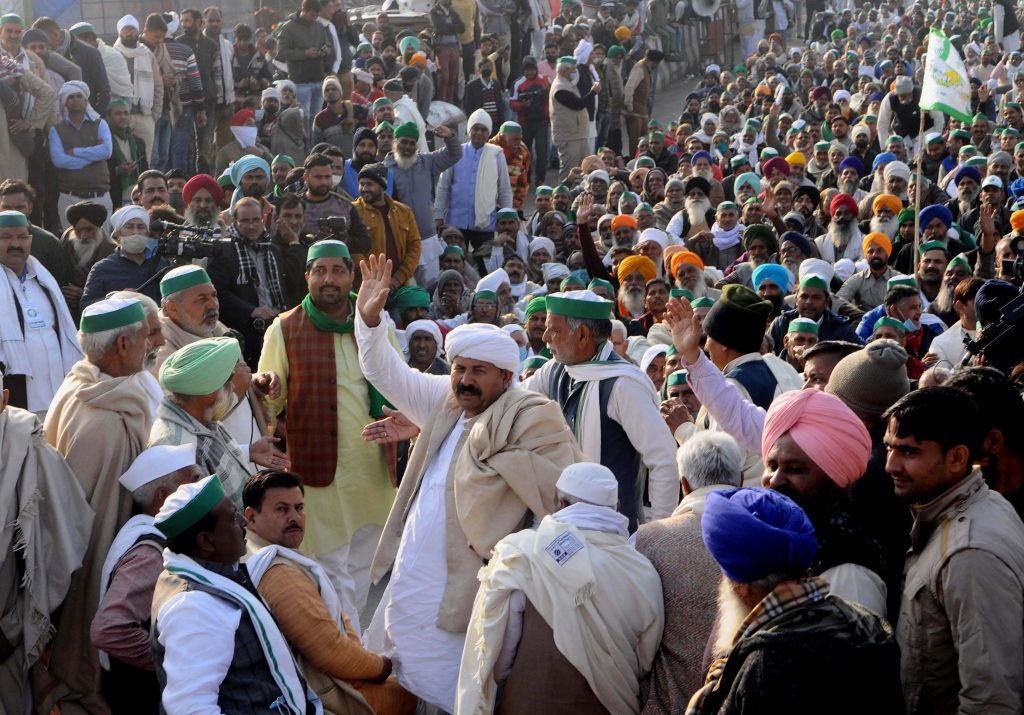Gokul Patnaik
The government has said that the new farm laws are a ‘game changer’ and has promised the farmers freedom, protection, and higher income. They have assured that the farmers can now sell their produce to anyone anywhere. APMC mandis will continue to function and will not be closed. Contract farming acts as a form of price assurance and farmers will have income security due to partnership with industry. Then why are the farmers unhappy?
The root cause is a growing distrust of the farmers with assurances given by the government as well as some glaring lacunae in the hurriedly enacted laws. Before coming into power, the 2014 manifesto of the ruling party had promised implementation of the 2006 report of the National Commission of Farmers headed by Dr MS Swaminathan, which had recommended that the MSP should be at least 50 per cent more than the weighted average cost of production. The non-implementation of this recommendation was a long-standing grievance of the farming community and the measly 2.6 per cent increase in MSP for Rabi wheat added fuel to the fire. The Modi government had also grandiosely announced in 2017 to double farmers’ income in 5 years by 2022. After three years, it seems like a pipedream. The farmers also fear that the path of so called ‘market reforms’ on which the government has embarked, will inevitably lead to pruning down of PDS system and revisiting of MSP policy as recommended by the Shanta Kumar Committee. Although the government has repeatedly assured that MSP will stay, farmers now demand it to be written into a law. In fact in 2011, when Modi was Chief Minister of Gujarat, a committee headed by him had recommended that MSP should be a legal right. It is to be noted that none of the new farm laws makes any mention of MSP.
The distrust also arises from the manner these laws were promulgated – in a hurry and almost by stealth. Moreover, agriculture is a State subject, and the states were not consulted while bringing in these momentous reforms. Is this cooperative federalism?
The drafting of the laws themselves leave huge gaps which would result in faulty implementation. The basic function of a market is to facilitate buying and selling of agricultural commodities. It should provide transparent price discovery system, preferably by open auction, good weighment mechanism and ensure certainty of payment. By complete deregulation, the government loses all control over orderly functioning of the market. Free-for-all may degenerate into chaos and uncertainty and may deter legitimate buyers from the market.
Regulated markets also play an important role in collecting price information and market intelligence. The prices prevailing in the APMC markets provide useful benchmark even to private buyers and sellers transacting business outside. Multitude of disaggregated markets operating independently will not be able to provide any signals. Moreover, if forming a single unified national market is the goal, the recent farm laws do nothing to achieve it.
It is said that the monopoly of a few cartels of traders in the APMC mandis keep the prices artificially low. In the absence of any regulation, the cartels within the mandi can efficiently reorganise outside the mandi to escape regulation and detection. Farmers feel that this may happen in a bigger scale and a few big businesses may dominate and capture the national market. They fear that the reforms are a deliberate plot to help big corporate houses.
It has been alleged that the current agitation is mainly by Punjab and Haryana farmers who have benefitted the most from MSP. Big farmers and commission agents are accused of fuelling the agitation. Though initially it was fronted by Punjab farmers, the agitation has now received wide scale support of farmers from all over the country. It is not surprising that Opposition parties have joined in. Akali Dal and BJD, which had initially supported the new laws, withdrew their support after they read the fine print and realised that their implementation in the present form would not be in the interest of the farmers. The Government of India has also relented and is willing to concede to many of the demands of the farmers, including a written assurance on MSP. But farmers insist on a repeal of all the three laws. We wait to see who will blink first. To be continued…
The writer is a retired IAS officer and former Chairman, Agricultural & Processed Food Products Export Development Authority (APEDA).
